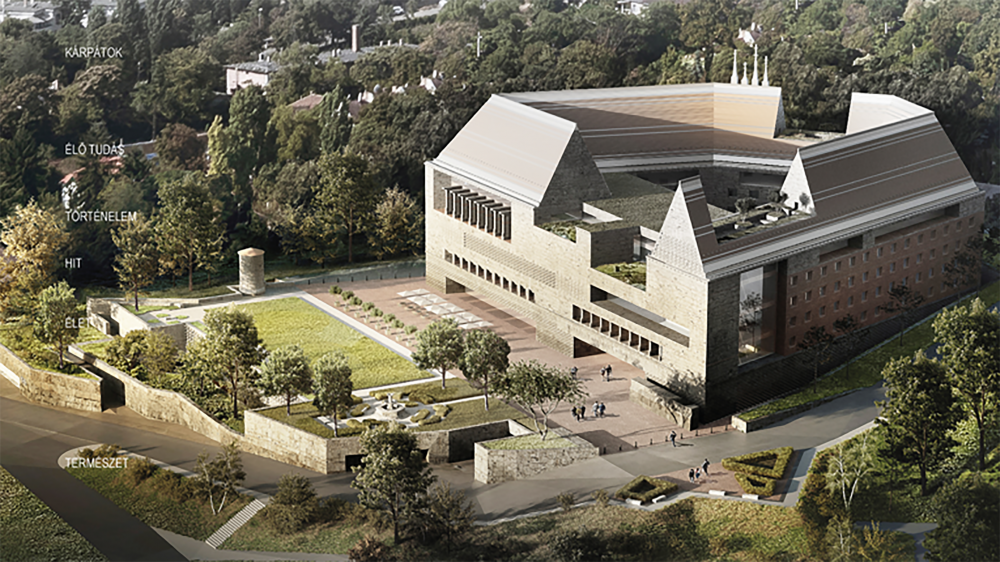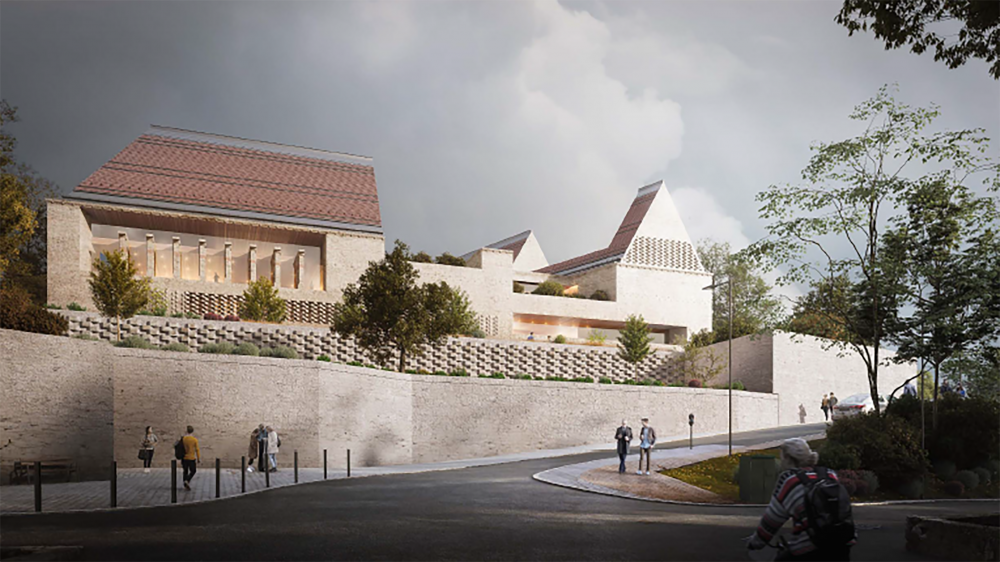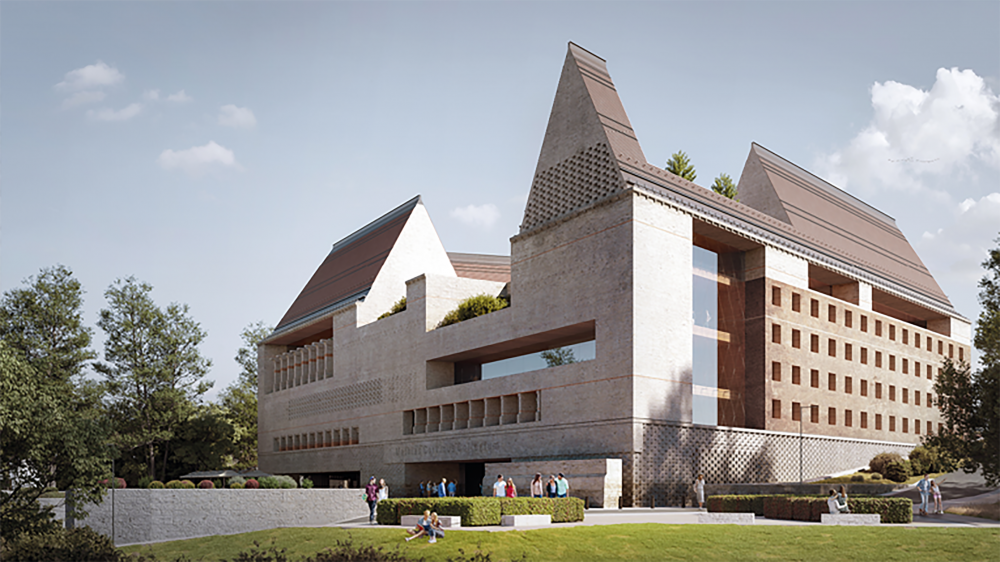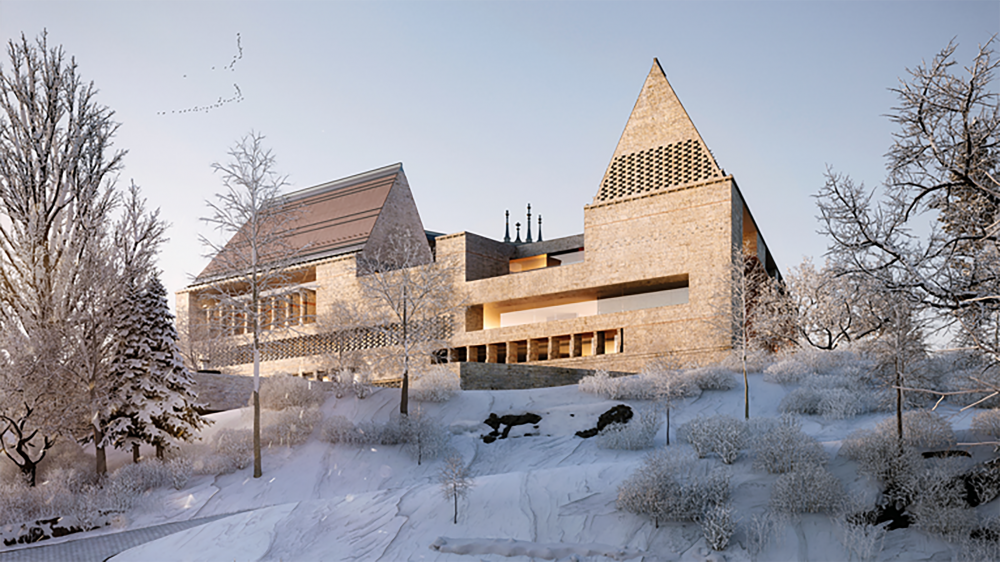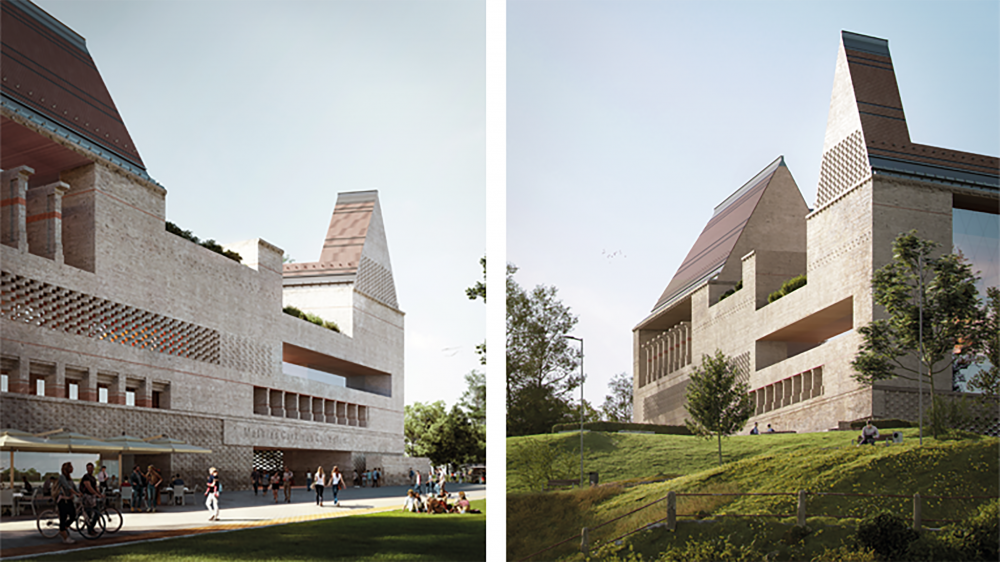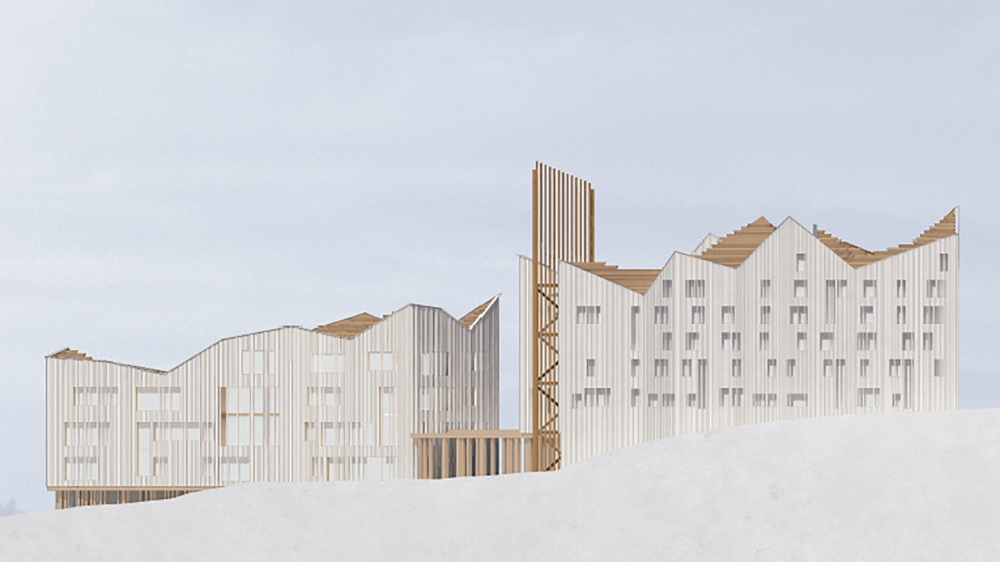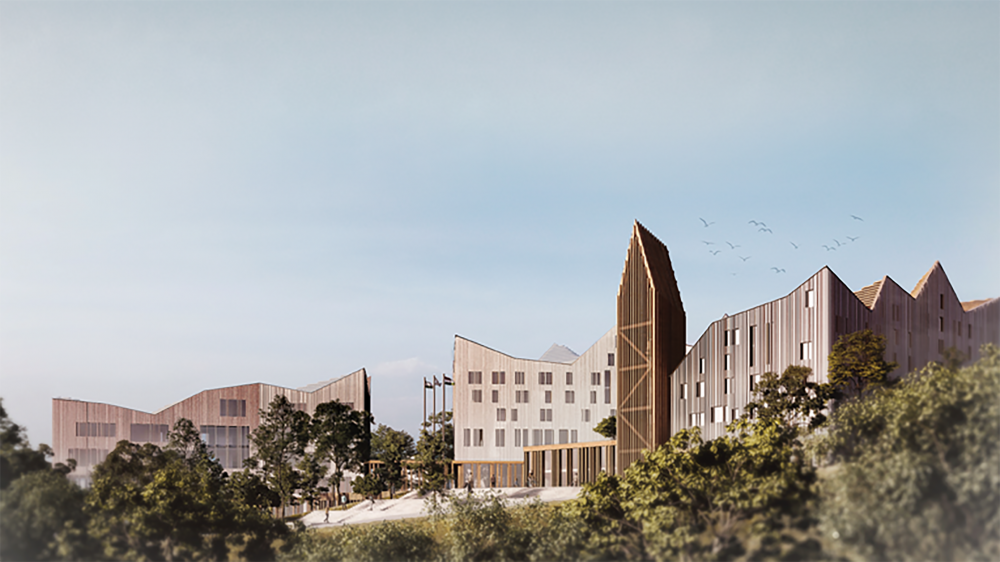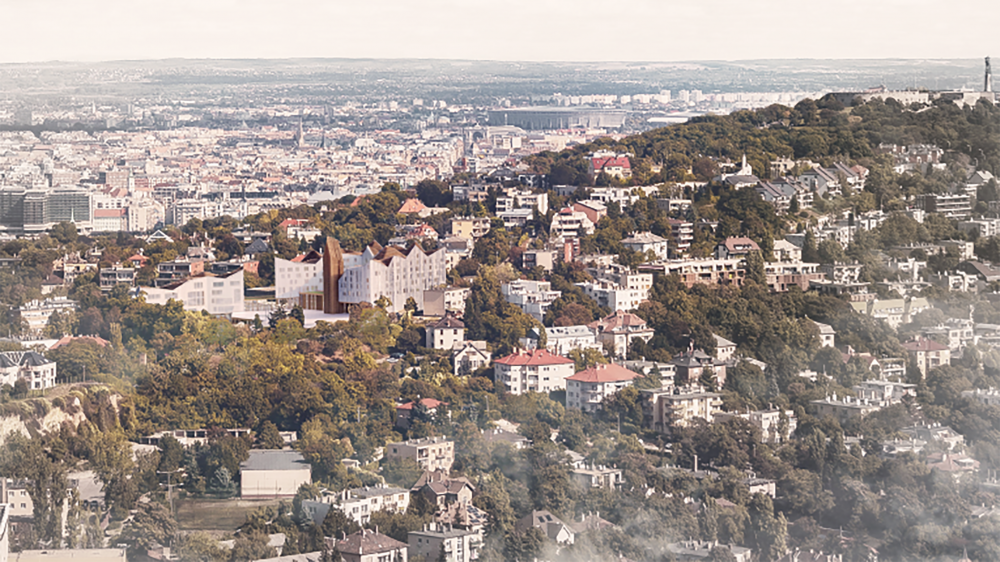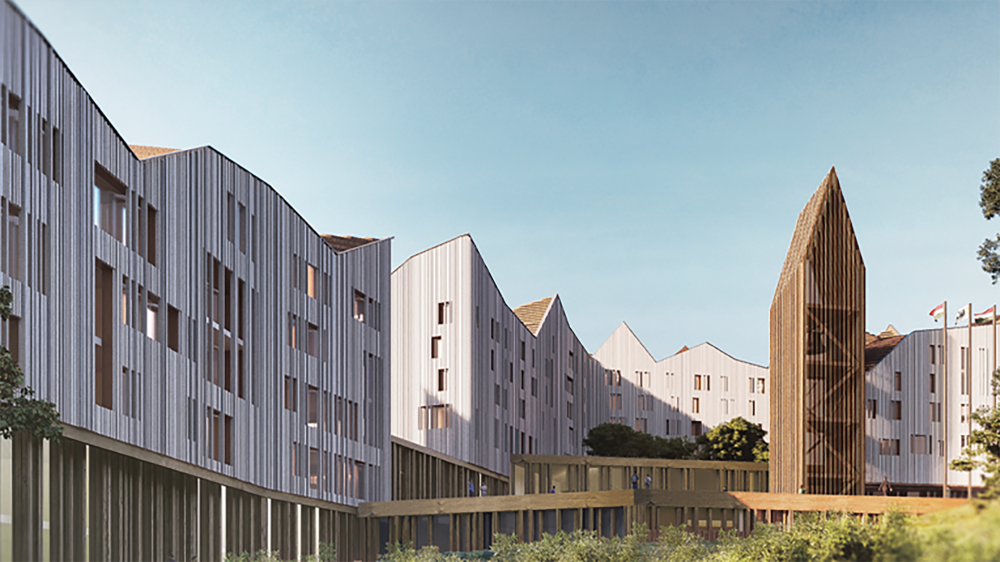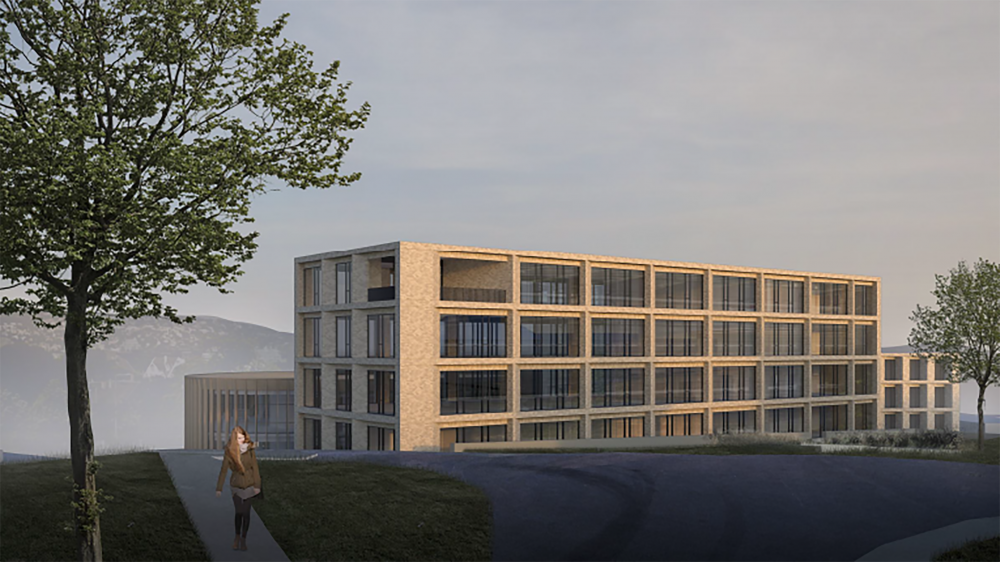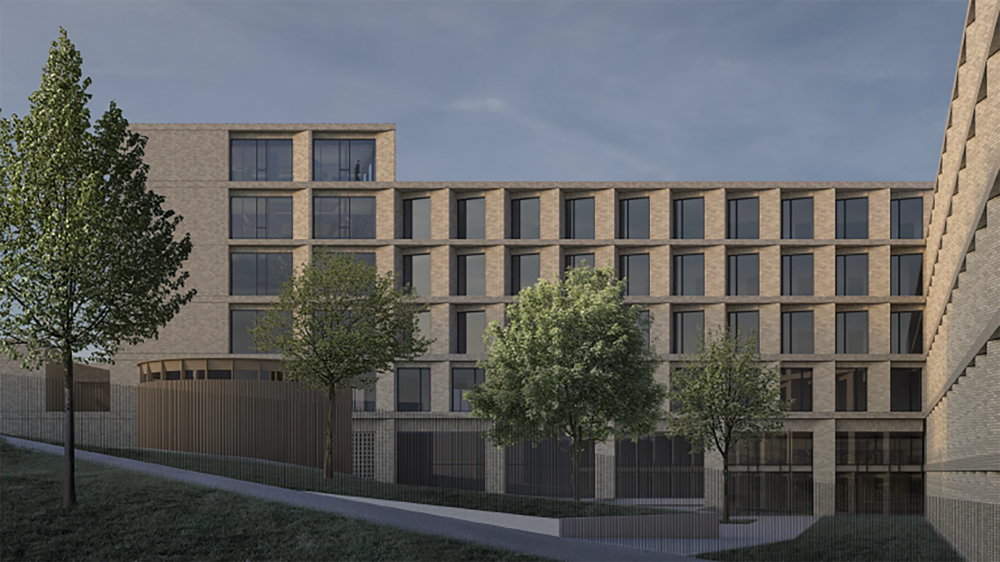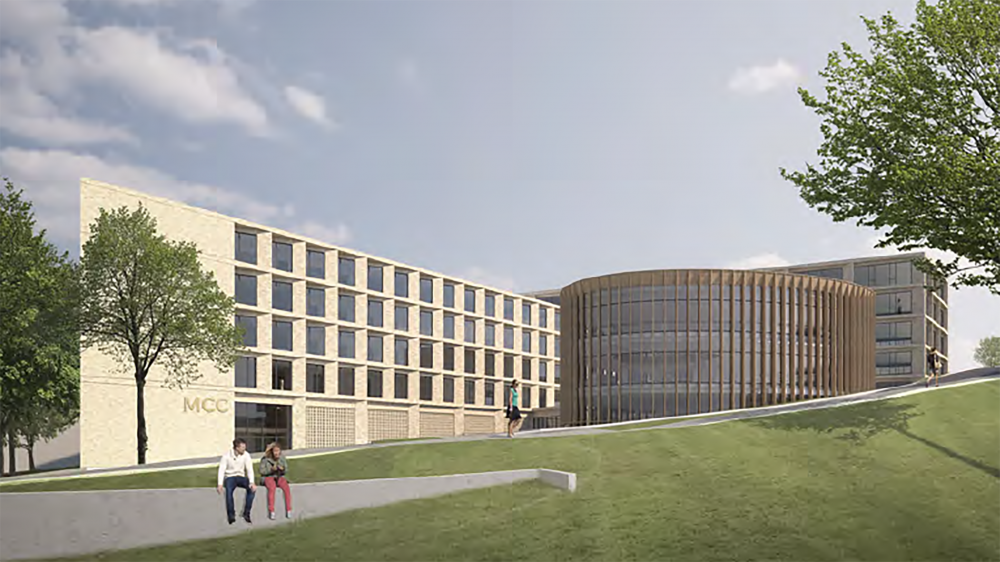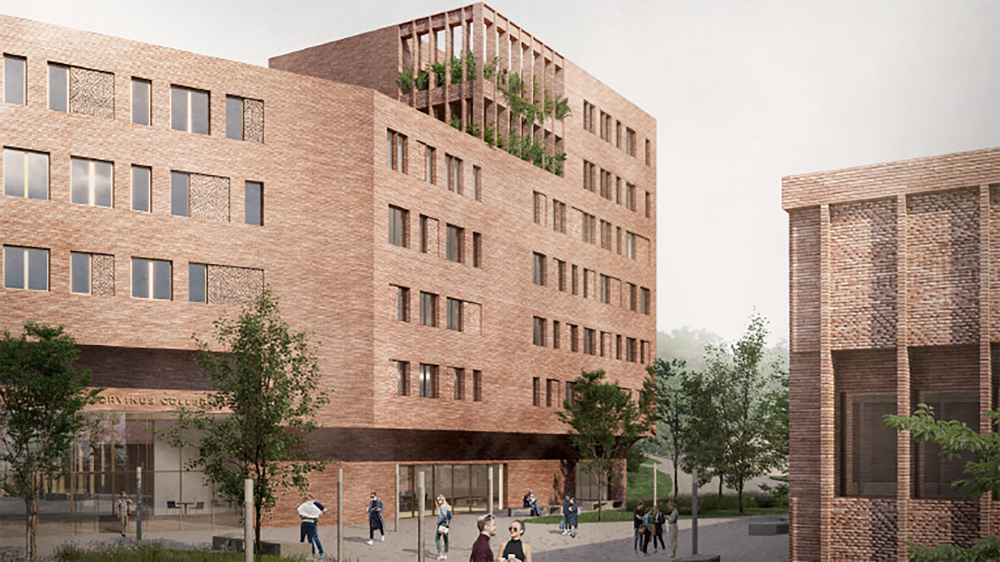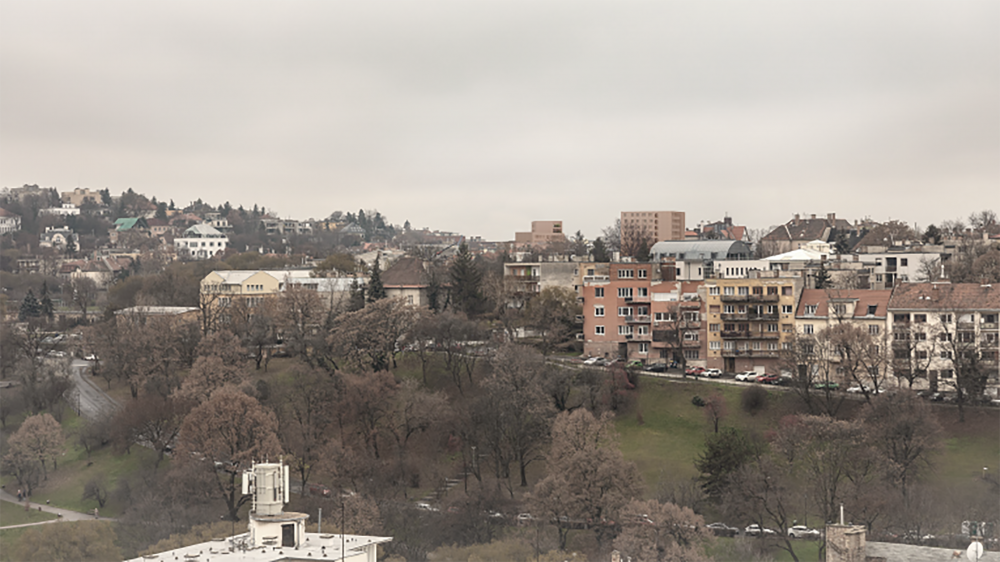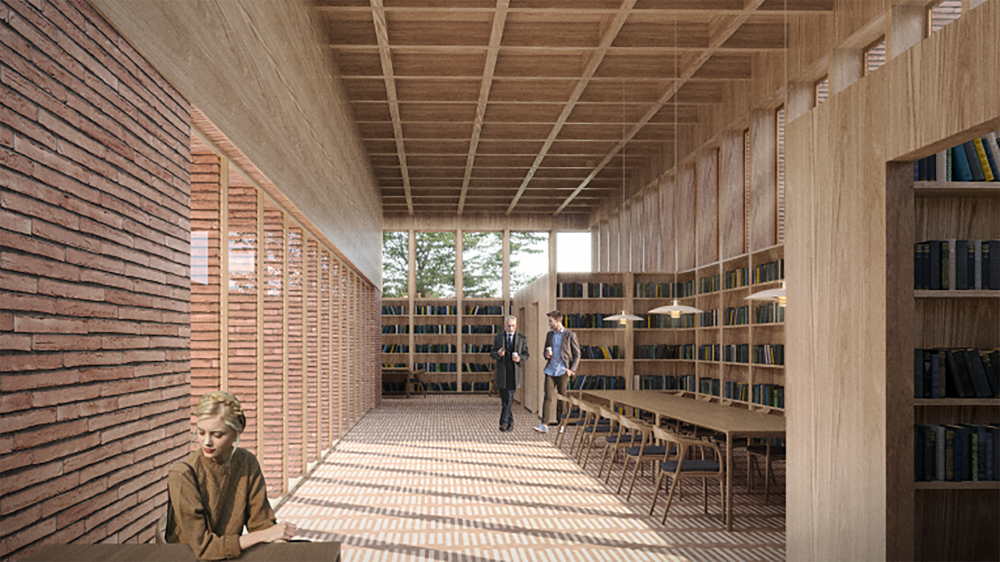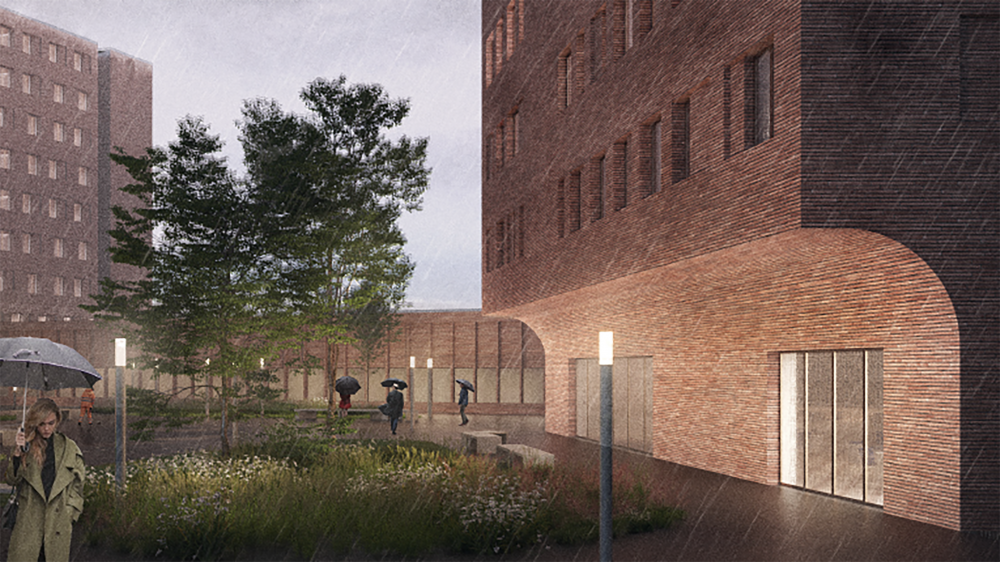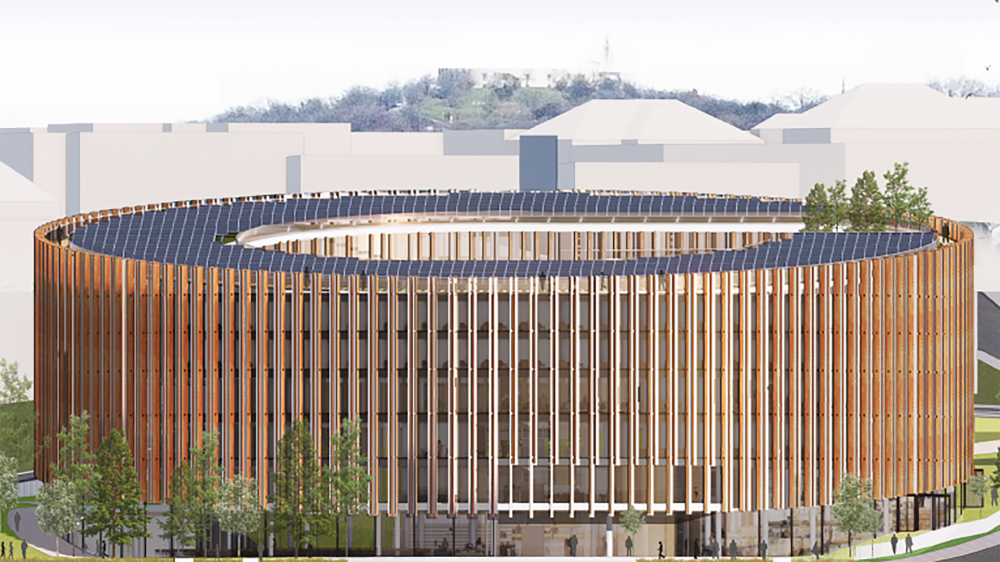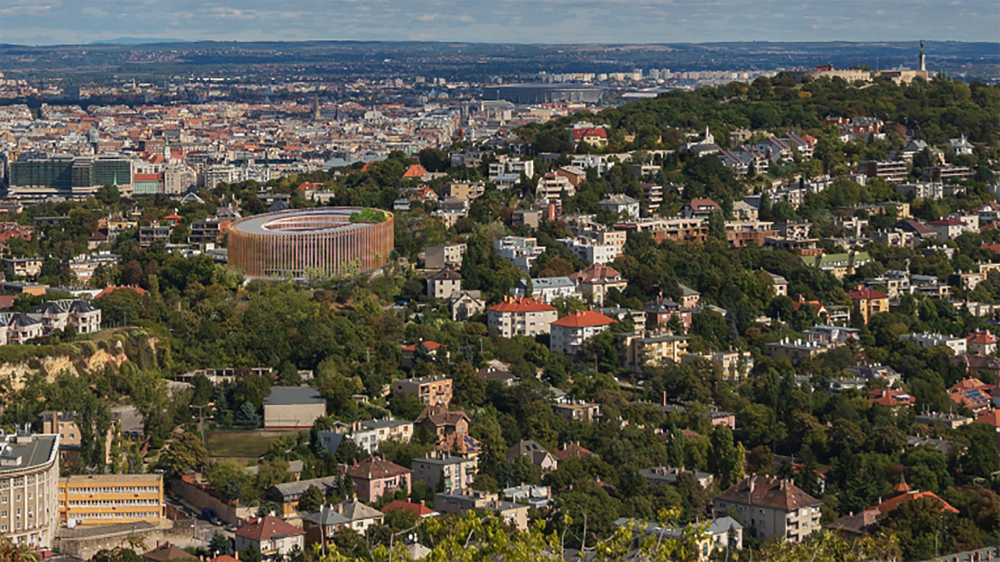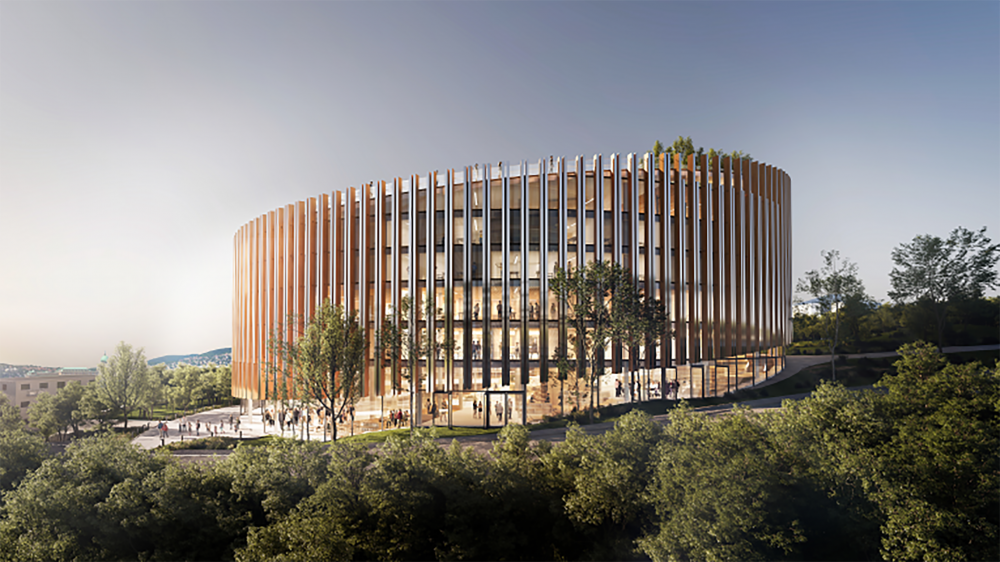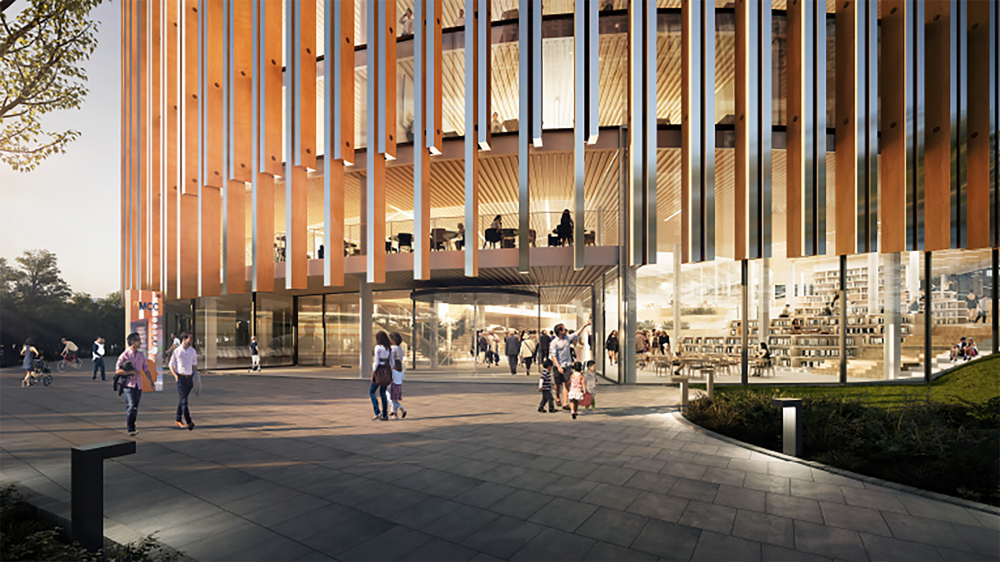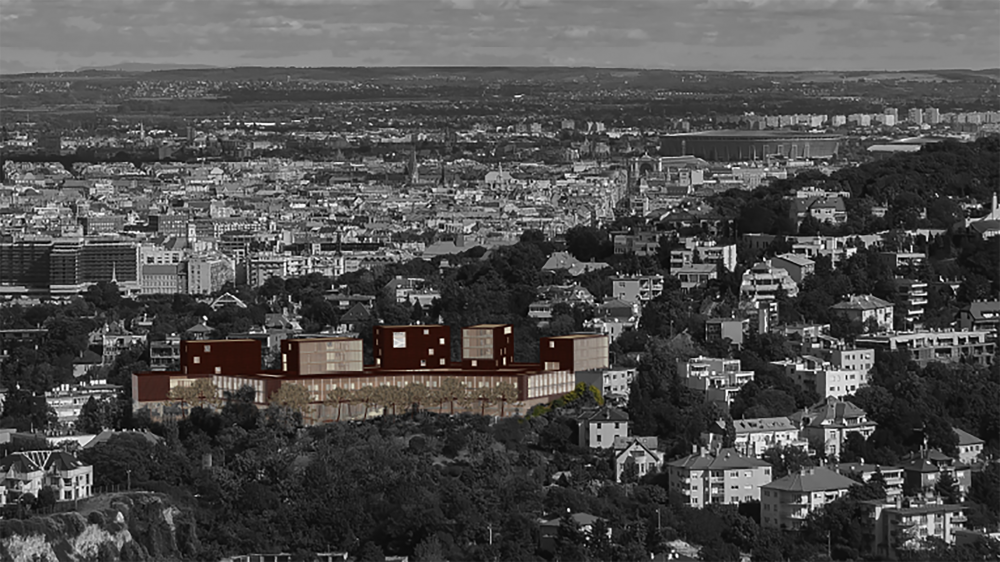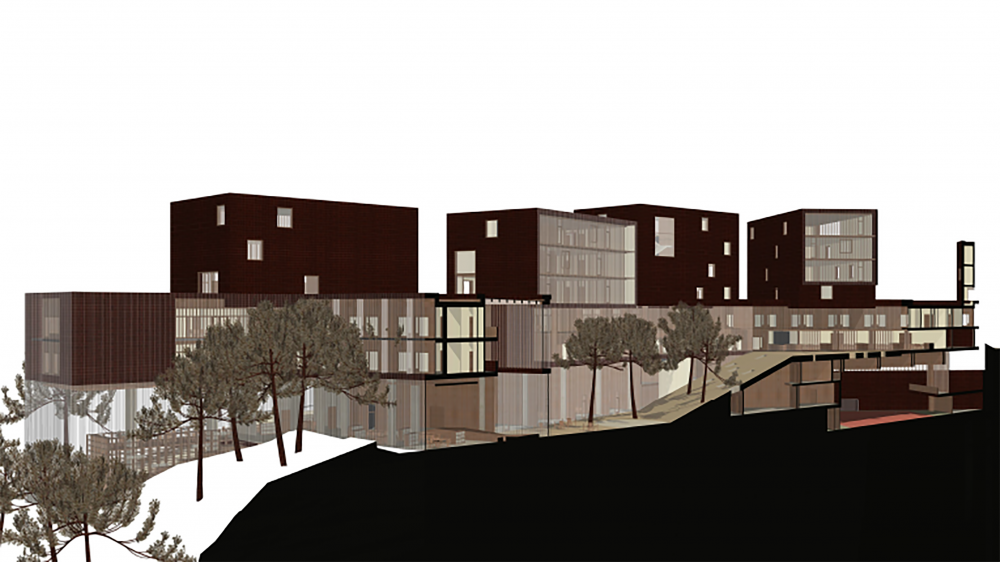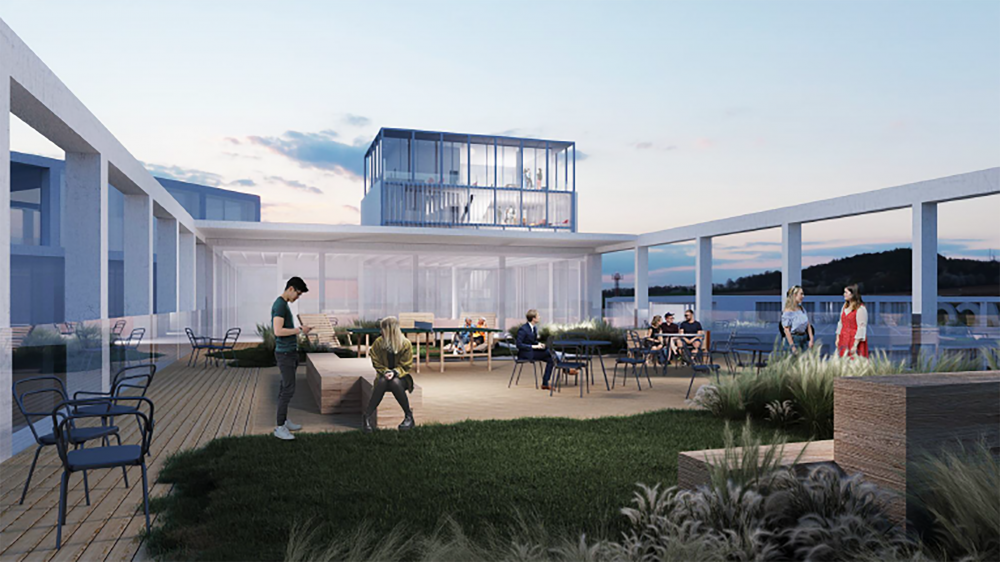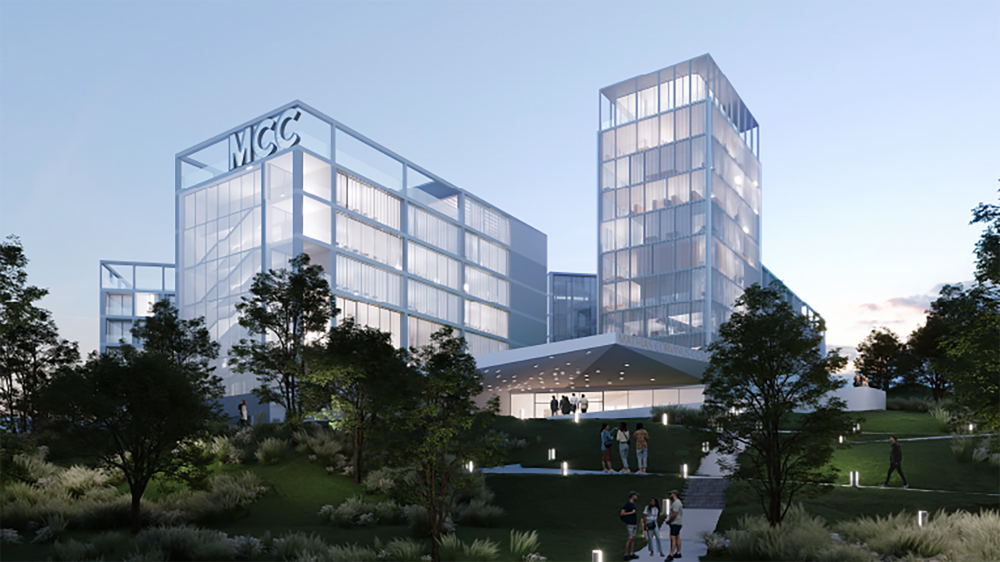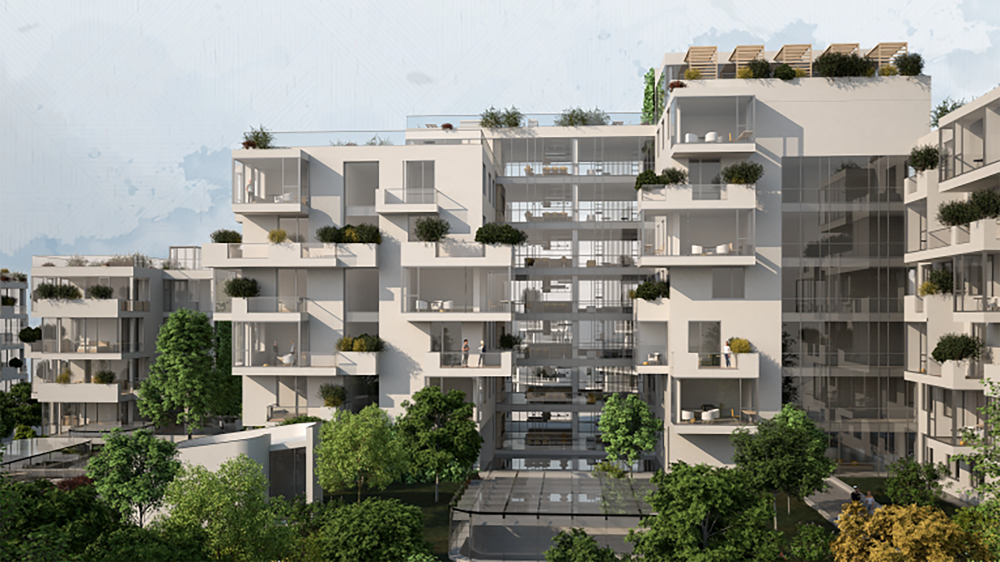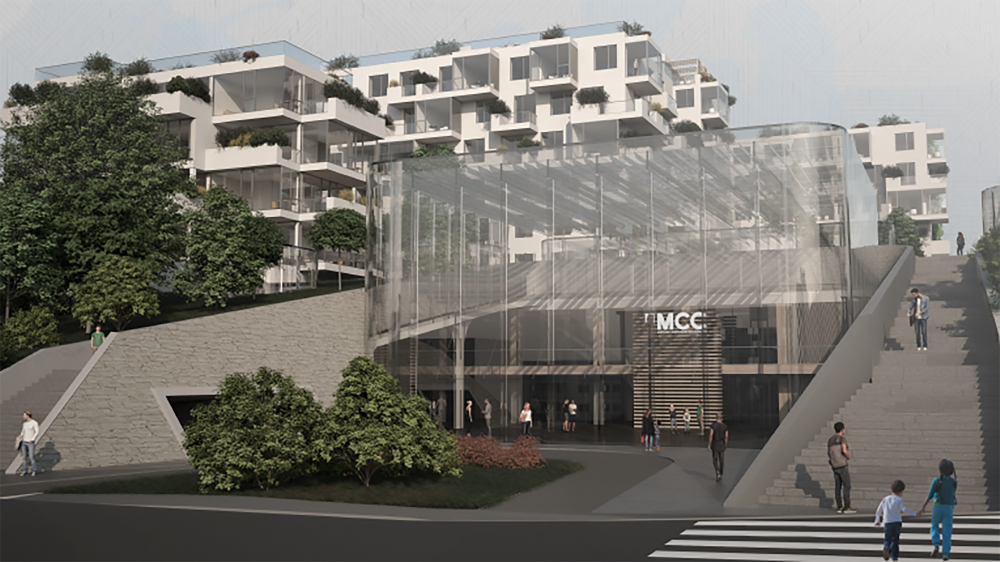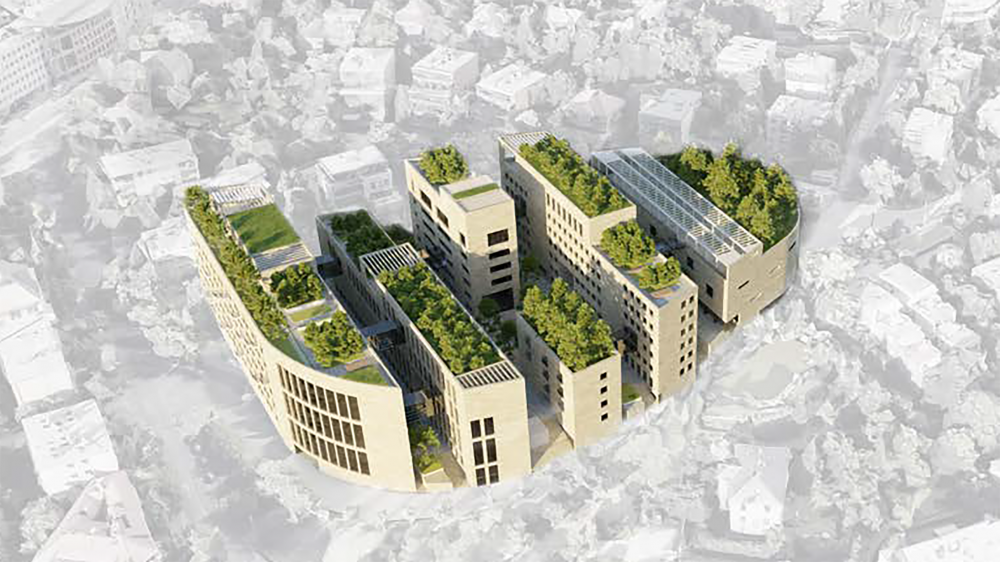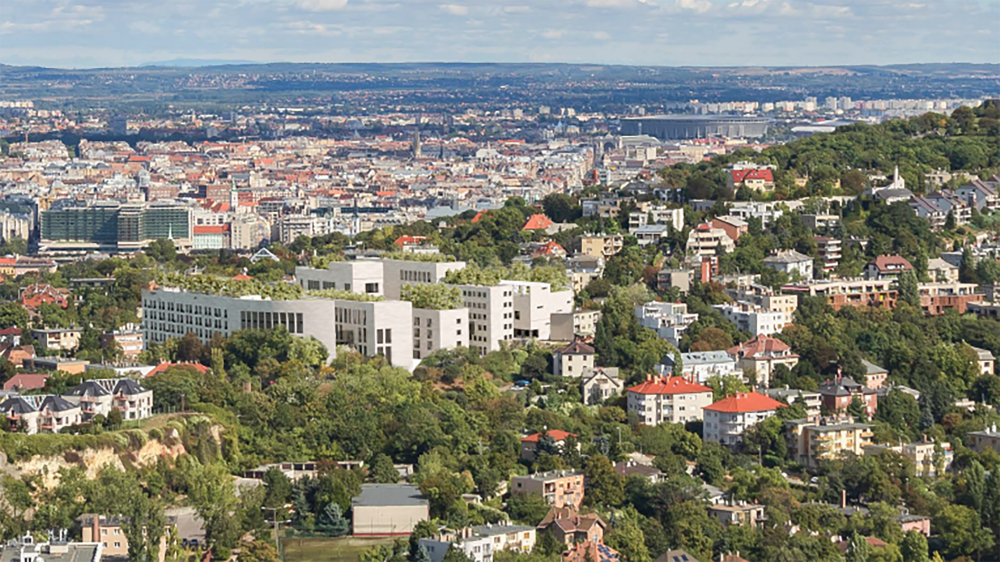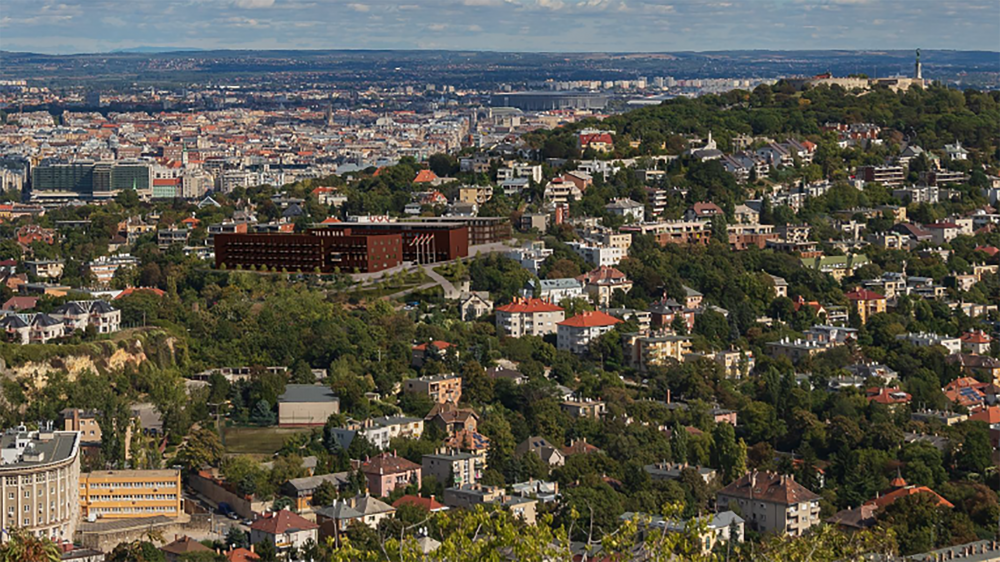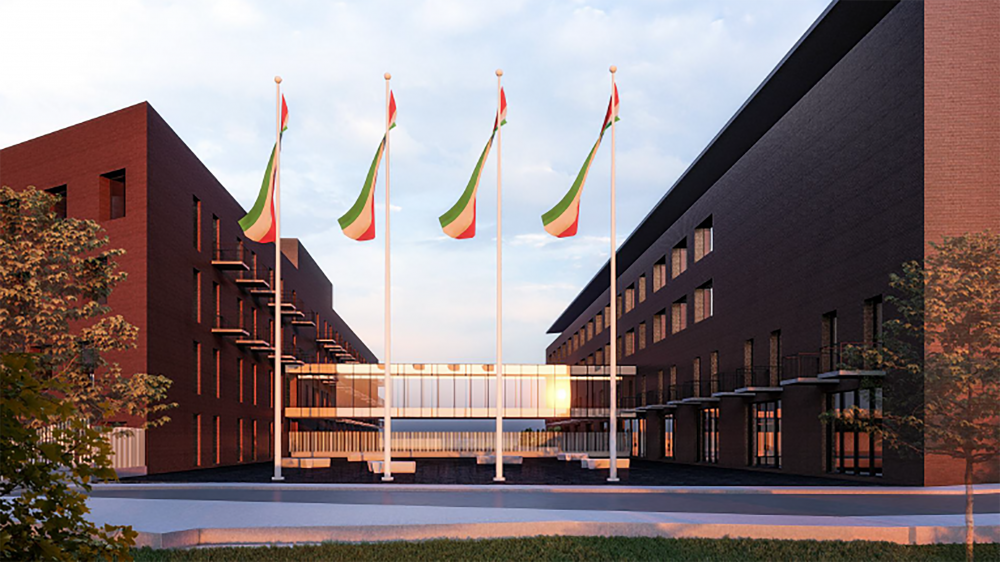Reading time: 4 minutes
Two winning tenders have been announced by a jury of experts as a result of the call for tender for the building development on MCC's Somlói Road property in Budapest, on 31 March 2021.
According to the jury's professional opinion, there are two winners in the public procurement and three more entries will be purchased by MCC. The first prize winners' building concepts are equally suitable to provide the basis for the plans of the new MCC buildings.
The first-place winners are Napur Architect Ltd., as well as Hello Wood Plc. and ZDA-Zoboki Design & Architecture Ltd., who submitted a joint tender. The tenders by ZIP Architects and Egyheted Studio Ltd, and that of Studio In-Ex and Archikon will be purchased by MCC. The competition was held anonymously and the identity of the tenderers was revealed to the jury once the results had been announced.
Zoltán Szalai, Director General of MCC, thanked the members of the jury and the tenderers for their work in a video-recorded announcement of the results, in compliance with the epidemiological rules. He stressed that all entries were excellent. The chairman of the committee pointed out that, when selecting the winners, he attached particular importance to the designs that met best the requirements of the MCC's task related to talent development and education. He highlighted that neither the historical past associated with the current building complex, nor the layout of the spaces fit the programs and the objectives of MCC. The need to increase the green space on the site and to allow the residents of the area to use the surroundings of the planned building were a priority.
Ernő Kálmán, the co-chair of the jury, emphasized that all 11 entries contained valuable ideas. The winning designs, which were recommended for purchase, are the most professionally suitable for the development of the area, the appropriate placement of spaces for talent development, and reflect a harmonious relationship between the built and the natural environment. The evaluation committee placed a high priority on finding the entries that best express the spirit behind MCC’s mission and its uniqueness.
Speaking on behalf of the Municipality of Budavár, Éva Csány, Chief Architect of the 1st District, expressed her pleasure to have been part of this open-minded tendering process. She stressed that the result fulfils the promise that the building will not belong only to the MCC, but to the whole city. She stressed that the building's view from a distance will create a new "distinctive urban point of reference for the benefit of the residents of the city".
Last year, Mathias Corvinus Collegium Foundation (MCC) launched an open call for tenders for the design of its new center for talent development at 49-53 Somlói Road, Budapest, in accordance with the relevant Hungarian legislation and EU publication rules. Eleven architectural proposals were received by the deadline and evaluated by a jury of experts. The voting members of the jury were Zoltán Szalai, Ernő Kálmán, Tihamér Szalay, Balázs Csóka, János Sándor, and Miklós Sulyok also participated in the evaluation as a non-voting member.
MCC's goal is to have an iconic building on Somlói Road, which fully embraces the functions of community building and organization, meeting the requirements of the 21st century, while also harmonizing with its environment. In the coming period, MCC will work closely with students, teachers and the professional community to refine the plans and integrate the client's needs that have come up since the launch of the tender process.
The entries will be presented to the public in the coming weeks and MCC plans to organize an exhibition in accordance with the rules on the epidemiological situation. The public can find out more about the institution's requirements for the architectural appearance and character on the MCC website.
A technical assessment carried out last year confirms that the current building complex is not suitable for the functions it is required to fulfill. Its energy solutions and technological equipment are outdated and its renovation is technically impossible or would require considerable financial investment. The distribution of space makes the property unsuitable for community-building educational activities based on open spaces, highly emphasized by MCC.
